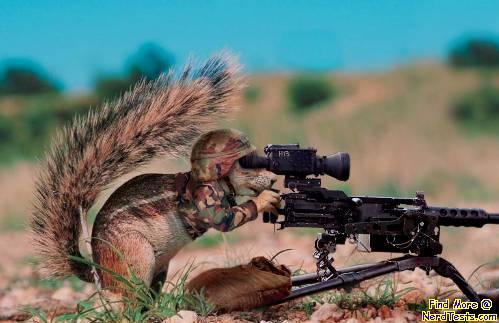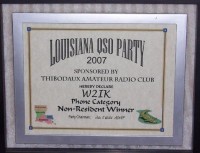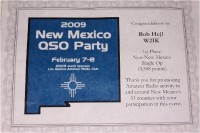One of the reasons some hams don’t wish to participate in amateur radio contests is that they believe they can never win a top spot using simple equipment against thousands of stations.
 There are several ways to answer this.
There are several ways to answer this.
One, you aren’t competing against the big stations in most contests as they usually break down the entries in to level playing fields such as entries for high and low power levels, etc.
Second, you should be thinking of your own contest operation as a challenge to yourself and not to others, to see how well you can do based upon the set up you have and your choice of bands based on propagation.
Propagation varies from day to day and year to year. You may be lucky to operate a large contest where you have the best propagation advantage and score very high! I remember operating from the ARRL station, W1AW, when propagation was so bad we barely got “out of the parking lot” using 1500 watts in to a beam antenna at almost 100 feet!
If you really wish to be a “top gun” using low power and a dipole, choose any number of smaller events such as the many state “QSO Parties” or even Skywarn Recognition Day.
- W2IK Wins Plaque from NM QSO Party in 2009
Above are just two of the certificates I’ve received as top non-state entrant in two different states’ QSO parties. I’ve beaten out high power stations even though I used just 100 watts into a simple wire antenna. I probably don’t use a station too different from yours.
What I do, however, is to choose the smaller contests wisely.
First, I look at the state QSO parties and see the results and entrants from preceding years as posted on their websites.
- How many participants were there? (The lower the number in previous years, the greater my chance of scoring highest)
- How high were their scores?
- How many contacts would I have to make to reach the high score goal?
- How far away is the state from my location?
- What are the rules and what counts as “multipliers”?
Let’s take the recent 2009 New Mexico QSO Party as an example.
Number one, it isn’t far from my QTH in Texas so I can usually count on using 40 meters as my main band of operation using basic propagation techniques. The same can be said for the Louisiana QSO Party.
Number two, there have been relatively few entrants as compared to, say, the Florida QSO Party. The state of Florida is also in what I would call a mid-propagation distance range from Texas so my band choice would not be harnessed to just one band making it more difficult to operate as I’d have to skip around bands (80 at night, 40 and 20 meters daytime), find either a free frequency or do “hunt and pounce” (Look for Florida stations only, instead of “camping out” or remaining on a frequency and call “CQ Florida Only”). This is also another problem.
Do I hunt on the bands for stations from that state or do I remain on a frequency and let them come to me? Usually, I camp out and let them come to me.
In these QSO parties there can be many mobile operators in the host state, driving from county to county to give out multipliers (counties) and once they log you on one frequency they’ll look for you again on that frequency after they’ve moved to another county.
The key to “camping out” is to keep your frequency busy by not allowing too great a time (only a few seconds) of silent periods between your calls.
Using a “voice keyer” is very helpful. I remember getting up to get a soda during a Texas QSO party when I operated from a remote location in the Texas hill country only to find that someone camped out on my frequency when I went to the cooler! I may also choose to switch to “hunt and pounce” towards the end of the contest if I need a new multiplier to up my score or if propagation goes in the toilet and the band seems dead.
The key is to be polite, yet aggressive, during a contest.
Look for what contest may suit you and your station location best, using the information I’ve suggested, and plan on doing a good job.
- Don’t become discouraged if propagation takes a dip because it can pop back up just as quickly.
- Follow all the rules they post for their contest as some contests have different rules.
- Avoid “dupes” in your final log as too many may disqualify your entry.
- Make sure all paperwork is completely filled out.
- But most of all, have fun!
You may end up being posted as tops from your state or top operator in the event and get a plaque.



March 18th, 2010 at 4:49 PM
[…] Make For A More Successful Contest Operation If you’ve read an earlier blog I posted: San Antonio Hams » Blog Archive » Little Contests For “Little Guns” , I mentioned about studying both the distance away from your anticipated contacts and propagation […]